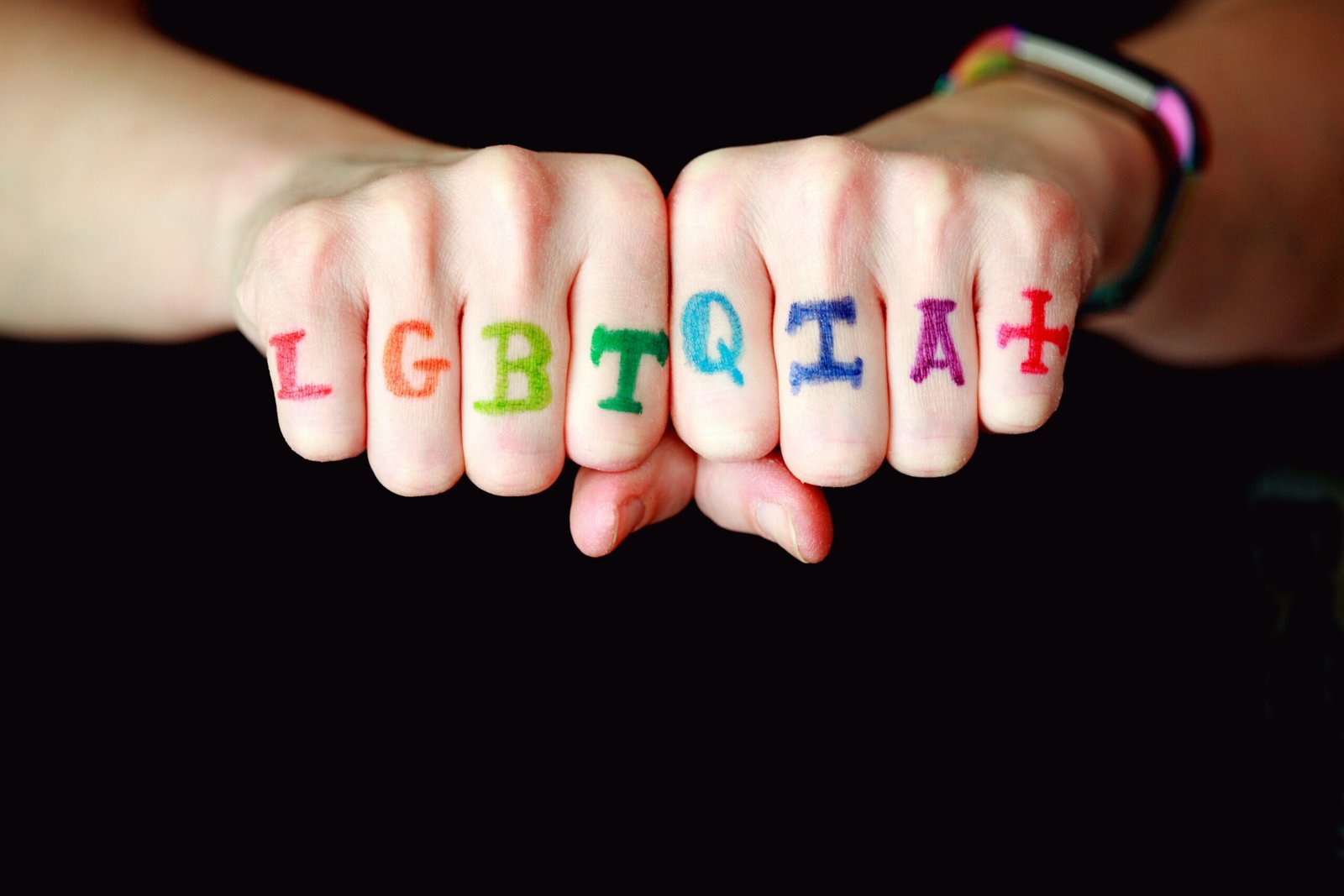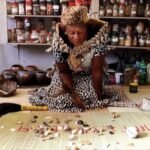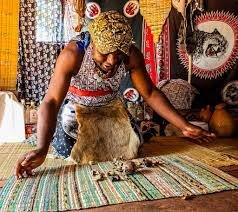
Introduction to Gender Change and African Traditional Magic
The practice of gender change, within the scope of African traditional magic, embodies a complex interplay of cultural beliefs, rituals, and individual identity. In various African societies, gender identity is not merely a binary construct; rather, it encompasses a spectrum of roles and expectations that are deeply rooted in communal values and historical narratives. Gender change spells, therefore, are seen not only as a means of personal transformation but also as a reflection of the broader societal understanding of gender roles.
African traditional magic serves as a spiritual framework through which practitioners engage with the metaphysical to effect change in their lives and the lives of others. These spells often draw upon ancestral wisdom, rituals, and symbolic practices that are passed down through generations. The significance of these spells extends beyond the individual; they often seek to harmonize one’s identity with the communal fabric, ensuring that personal transformations align with the collective understanding of gender within specific cultures.
<p a="" acceptance,="" across="" african="" and="" are="" as="" authenticity,="" change="" community="" community.="" continent.
In exploring the realm of effective gender change spells, one must recognize the intricate cultural significance and the respect afforded to traditional practices. As we delve further into the mechanisms and testimonies surrounding these spells, a nuanced appreciation of the relationship between personal transformation and cultural identity can be gained, highlighting the relevance and efficacy of these practices in contemporary society.
Understanding Spells in African Traditional Magic
In the realm of African traditional magic, spells hold profound significance, often regarded as essential tools for transformation, healing, or empowerment. These spells can be understood as intentional acts of communication with spiritual entities or forces that govern the universe. Practitioners, referred to as traditional healers or spiritual leaders, harness these spells to effectuate change in various aspects of life, including love, health, and even gender identity. Each spell is steeped in cultural relevance, reflecting the intricate beliefs of diverse African communities.
Spells in this tradition can be categorized into several types based on their purposes and the beliefs associated with them. Healing spells aim to restore balance and health, while protective spells serve to shield individuals from harm or misfortunes. Among these, gender transformation spells are specifically designed to enable individuals to embrace or express their gender identity authentically. Such spells reflect a deeper understanding of gender as a fluid concept, rather than a rigid binary. The efficacy of these spells often draws upon a combination of natural elements, ancestral wisdom, and the spiritual energy channeled by the practitioner.
The underlying beliefs governing these spells emphasize that everything in the universe is interconnected. Practitioners assert that the power to change one’s circumstances, including their gender identity, is achievable through the right rituals and intentions. These spells require a deep understanding of the natural and spiritual worlds, as well as a commitment to the rituals and practices that accompany them. Consequently, the transformative power of spells in African traditional magic reflects not only the individual’s desires but also the holistic understanding of personal growth as interwoven with the community’s collective experience.
Historical Context and Cultural Practices Around Gender Change
The recognition and acceptance of gender diversity in various African cultures can be traced back to rich historical traditions and social structures that have existed for centuries. Many African communities have long acknowledged the existence of multiple gender identities, portraying a nuanced understanding of gender beyond the binary framework commonly recognized in Western societies. This historical perspective is significant in the discourse surrounding gender change spells and the enchantments associated with transforming gender identities.
For instance, in certain cultures such as the Buganda in Uganda, individuals known as “Ganda” are respected within their communities, regardless of their gender identity. These recognition practices have included roles that allow individuals to embody their true selves, often referred to as “feminine men” and “masculine women.” In these societies, such identities are not only accepted but also celebrated through rituals, affirming the importance of allowing individuals to express their authentic selves without societal retribution.
Initiation rituals and rites of passage have played a significant role in acknowledging gender diversity as well. For example, among the Taita people of Kenya, coming-of-age ceremonies may incorporate elements that honor individuals who deviate from conventional gender norms. These ceremonies not only signify the transition into adulthood but also empower individuals to embrace their gender identities as part of their cultural heritage.
Moreover, the emergence of modern discussions around gender identity has been intricately woven into the fabric of these traditional practices. The continued use of gender change spells within certain communities illustrates a conjunction of historical beliefs and contemporary understandings of gender fluidity. Ultimately, the interplay between historical contexts and cultural practices emphasizes the deep roots of gender diversity in Africa, underscoring the need to honor and validate these identities within the modern societal landscape.
Key Ingredients and Tools Used in Gender Change Spells
In the realm of African traditional magic, the effectiveness of gender change spells often hinges on specific ingredients and tools, each imbued with unique significance. These components are ceremonially selected not only for their physical properties but also for their spiritual attributes, which are believed to enhance the ritual’s potency. Among the most commonly used ingredients are various herbs, oils, and colors, each playing a distinct role in the transformation process.
Herbs such as basil, ginger, and vervain are frequently integrated into gender change spells. Basil, known for its protective qualities, is said to assist in removing negativity and promoting a clearer path towards transformation. Ginger is revered for its energizing properties, stimulating personal drive and courage, essential elements when invoking change. Vervain, considered a powerful herb for manifestation, symbolizes a bridge between the physical and spiritual realms, thereby enhancing the spell’s intentions.
Colors also hold significant importance in these rituals, with each hue embodying specific energies. For instance, blue is often associated with tranquility and fluidity, reflecting the desired state of gender expression. In contrast, pink symbolizes love and self-acceptance, essential for fostering a positive self-image. Practitioners may utilize colored candles in their rites, as the flames are believed to amplify intentions while the colors correspond to specific aspirations related to gender identity.
Additionally, various tools may be employed during the rituals. Commonly used objects include mirrors, which symbolize reflection and self-discovery, and stones like rose quartz, known for its properties of compassion and emotional healing. Rituals often require practitioners to create sacred spaces in which they can focus their energies, enhancing the spell’s effectiveness. By integrating these carefully chosen ingredients and tools, individuals seeking gender transformation can engage in a profound spiritual practice that honors both their personal journey and the rich traditions of African magic.
Process of Casting Effective Gender Change Spells
Casting effective gender change spells using African traditional magic involves a careful and respectful process. It is crucial to prepare adequately before starting the ritual. The first step in this process is to create a sacred space. This can be done by selecting a quiet area where disturbances are minimal. Cleaning the space physically and energetically is emphasized; this purging allows for focused energy that aids the spell’s efficacy. Gather the necessary materials, which may include items like candles, herbs, crystals, or personal belongings that symbolize the desired gender identity.
Timing also plays a significant role in the process. Different lunar phases carry unique energies; for gender change spells, the waxing moon is typically considered most powerful, as it symbolizes growth and transformation. Consider setting your ritual during this period to align your intentions with the universe’s natural rhythms. Additionally, select a day and hour that resonate with personal significance, or match the auspicious days traditionally recognized in African cosmology.
The practitioner’s mindset is another essential element. Entering the ritual with pure intentions and a positive attitude is paramount. Meditation or grounding exercises can help clear the mind and connect with spiritual energies. It is advisable to articulate your intentions clearly, whether through spoken words, written affirmations, or visualizations. Respect is a vital component of this process, not only towards the energies being invoked but also towards oneself and the journey you are embarking on. Each action taken should be imbued with intention, creating a powerful alignment between the practitioner’s desires and the broader forces of nature.
Finally, after conducting the ritual, be sure to close the sacred space properly. Thank the spirits or energies you invoked and return any objects used for the spell to their respective places. This structure ensures that the process is complete, paving the way for the intended change to manifest effectively.
The Role of Spiritual Guides and Healers
In the realm of African traditional magic, the influence of spiritual guides and healers cannot be overstated, especially when it comes to casting effective gender change spells. These practitioners possess a profound understanding of spiritual practices and the complex interplay between intention and manifestation. Their expertise enables individuals to navigate their desires with clarity, ensuring that the casting of spells is performed correctly and in a way that aligns with the individual’s unique circumstances.
Spiritual guides, often referred to as shamans or traditional healers, serve a dual purpose. First, they help individuals articulate their desires regarding gender change through thoughtful dialogue and introspection. This process is essential, as an ambiguous or unclear intention may result in ineffective spellwork. The guide’s role is to facilitate a deeper understanding of one’s feelings and aspirations, ensuring the intent behind the spell is pure and well-defined.
Moreover, these practitioners ensure that the appropriate rituals, materials, and incantations are employed during the spell-casting process. Given their extensive knowledge of traditional methods, they can tailor each spell to meet the specific needs and cultural aspects of the individual seeking assistance. This personalized approach enhances the likelihood of a successful outcome, as traditional healers draw upon ancestral wisdom and powerful spiritual connections.
Ethical considerations also play a critical role in this practice. Spiritual guides emphasize the importance of consent and respect for the free will of others, ensuring that the spells cast do not manipulate or harm individuals. Such ethical frameworks contribute to the integrity of the practice, fostering a sense of responsibility among practitioners and clients alike. Engaging the services of a spiritual guide or traditional healer thus not only aids in the journey toward gender change but also reinforces the spiritual, ethical, and cultural dimensions inherent in African traditional magic.
Real Stories: Successful Gender Change Transformations
Across various cultures in Africa, traditional magic practices have been an integral part of life, often intertwined with personal transformation and healing. Among these practices are gender change spells, which have facilitated profound and meaningful journeys for many individuals seeking to align their external identities with their true selves. Here, we explore true accounts from those who have experienced successful gender transformations through African traditional magic.
One compelling story is that of Ayanda, who described a painful struggle with gender dysphoria from an early age. Feeling unrecognized in her assigned gender, Ayanda sought the guidance of a traditional healer, known for their expertise in gender change spells. The healer performed specific rituals that included herbal mixtures, ancestral invocations, and personal charms. Ayanda’s experience underscored the importance of community support, as she found solace in a collective that respected her journey. Following the spell’s effectiveness, she reported a newfound sense of freedom and acceptance, both from herself and from her surroundings.
Another inspiring account is from Kwame, a young man who always felt a disconnect from societal expectations placed upon him. After years of feeling trapped, he decided to explore traditional African magic. Guided by a well-respected elder, Kwame engaged in a series of rituals that included offerings and spiritual cleansing. The transformation was not merely physical; Kwame noted the emotional liberation he felt as he embraced his new identity. He shared, “It wasn’t just about changing my outward appearance; it was about reclaiming who I am inside.” Stories like Ayanda’s and Kwame’s highlight the profound impacts that effective gender change spells can have on individuals, addressing both emotional and psychological dimensions of their journeys.
These narratives not only reinforce the validity of gender change spells in African traditional practices but also emphasize the holistic nature of transformation. Each transformation process is unique, yet they collectively reveal a greater understanding of identity and acceptance within the paradigm of traditional magic. Such testimonials continue to inspire hope and validation for those considering similar paths.
Challenges and Misconceptions about Gender Change Spells
Gender change spells, an integral part of traditional African magic, have attracted both keen interest and skepticism. One of the most prevalent misconceptions is that these spells can automatically induce a physical transformation without the necessary preparation or personal commitment. In reality, practitioners emphasize that successful implementation is rooted not only in spirituality but also in the individual’s mindset, intentions, and actions. Thus, viewing these spells merely as a means to an end undermines their true purpose and cultural significance.
Moreover, cultural stigma often surrounds the practice of gender change spells, especially in societies resistant to acknowledging diverse gender identities. Some individuals may harbor misconceptions that engaging with these spells is inherently immoral or indicative of personal weakness. This stigma can deter individuals from seeking the help or guidance they might need. Respectful dialogue and education about gender change spells are crucial to dispelling myths and fostering an environment that allows for the exploration of one’s identity.
Another challenge arises from the potential adverse consequences of misusing or misunderstanding these spells. Neglecting to consult with knowledgeable practitioners may lead to unintended outcomes, as a lack of understanding of the rituals and their meanings can result in ineffective or harmful experiences. Thus, it is essential for both practitioners and those interested in gender change spells to engage with the subject matter thoughtfully. Ethical practices and respectful approaches are vital in ensuring that these traditions are not only honored but also safeguarded from the misunderstandings that can arise in broader discussions about gender and identity.
In summary, addressing the challenges and misconceptions surrounding gender change spells involves a commitment to education, respect, and ethical practices. Engaging in informed conversations can help bridge the gap between traditional practices and modern understandings of gender identity, contributing to a more inclusive dialogue surrounding these powerful magical traditions.
Conclusion: Embracing Gender Diversity through Magic
In examining the realm of gender change spells within African traditional magic, it becomes clear that these practices serve as a vital tool for fostering understanding and acceptance of gender diversity. By exploring ancient traditions alongside contemporary interpretations, we observe how these magical practices can facilitate personal and communal transformation. The spells discussed highlight not only the power of intention but also the cultural significance of gender fluidity, demonstrating that magic is not merely a relic of the past, but a living, evolving practice that resonates with many today.
Through the lens of gender change spells, we can reflect on the broader implications for society. As individuals seek spells to align their outward expressions with their inner truths, the rituals foster a greater acceptance of varied gender identities. They encourage communities to embrace diversity, promoting a culture of respect and understanding flowing from the acknowledgment of different gender experiences. This pursuit of inclusivity is essential in today’s world, where traditional norms are constantly being redefined.
Moreover, by encouraging an open-minded exploration of these magical practices, we foster a deeper connection to heritage and identity. Engaging with spells that facilitate gender transition challenges preconceived notions and fosters empathetic dialogues, ultimately contributing to a more harmonious coexistence. In essence, gender change spells symbolize the blending of history and modernity, urging us to recognize and celebrate individual differences while honoring the cultural wisdom of ancestral practices.
In conclusion, embracing the magic of gender change spells not only enriches our understanding of gender diversity but also affirmatively influences the societal landscape. As we delve into these spellwork traditions, we invite an era of compassion, inclusion, and acceptance, creating spaces where everyone can thrive as their true selves.









